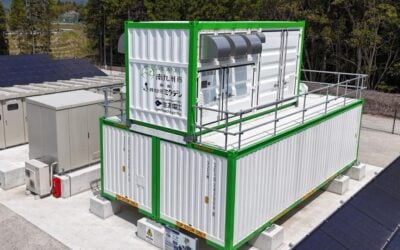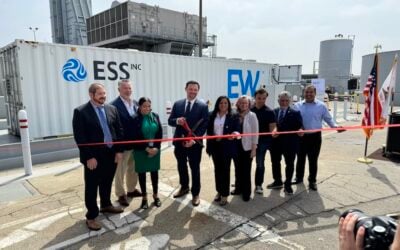Aerospace giant Lockheed Martin has acquired energy storage company Sun Catalyx, which was founded by a Massachusetts Institute of Technology (MIT) professor and has recently been developing flow batteries for grid storage.
The institute’s magazine, MIT Technology Review, describes Sun Catalyx as an MIT spinoff. In the early days of the company, which was founded in 2009 by Professor Daniel Nocera, it was aiming to enable advanced hydrogen fuel cell technology that, according to MIT Technology Review, “could cheaply strip the hydrogen from water and use the hydrogen in a fuel cell to make electricity".
Enjoy 12 months of exclusive analysis
- Regular insight and analysis of the industry’s biggest developments
- In-depth interviews with the industry’s leading figures
- Annual digital subscription to the PV Tech Power journal
- Discounts on Solar Media’s portfolio of events, in-person and virtual
Sun Catalyx also received a grant from the US government via ARPA-E (Advanced Research Projects Agency – Energy) to develop a hydrogen technology that could use solar energy to directly produce hydrogen from water.
The company had announced a 2010 Series B funding round that raised US$9.5 million led by a subsidiary of India’s Tata Group. However Sun Catalyx has since determined that the shorter term market represented by flow batteries for grid stabilisation represents a better opportunity for the company. Sun Catalyx CEO Mike Decelle said that the hydrogen cell technology, described as an “artificial leaf” for the way that it works, was a “tough pitch” in “venture capital time scales”.
The renamed company, Lockheed Martin Advanced Energy Storage, will report to Lockheed Martin's Missiles and Fire Control Business. Image: wikimedia/ John Torcasio.
Pursuing flow battery technologies, similar to those launched by American Vanadium and Primus Power among others, MIT Technology Review reported claims from Sun Catalyx that its battery solution is based on “designer molecules", made from abundant and environmentally benign materials. At the time of the MIT Technology Review article, March 2013, the company was reported to be targeting costs of US$200 to US$250 per kWh for its flow batteries.
The newly acquired asset will be renamed Lockheed Martin Advanced Energy Storage, and will report to the parent company’s Missiles and Fire Control Business Area. According to Lockheed Martin, the purchase will complement “existing Lockheed Martin capabilities in the area of energy management and efficiency". Financial terms of the deal were not disclosed.
The Sun Catalyx workforce, around 25 employees, will be transferred to the new company. According to MIT Technology Review, around half the staff are chemical engineers and the majority of the remainder are engineers.






